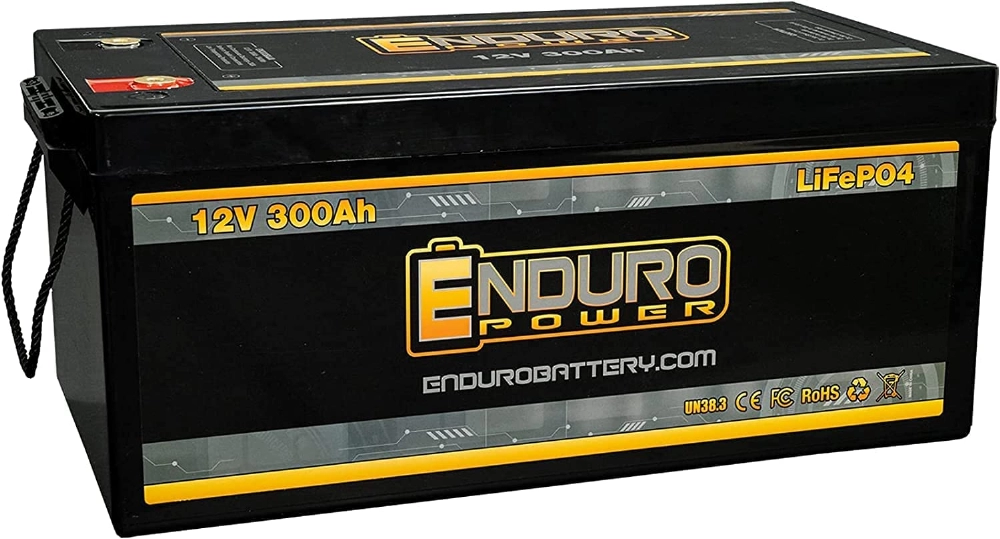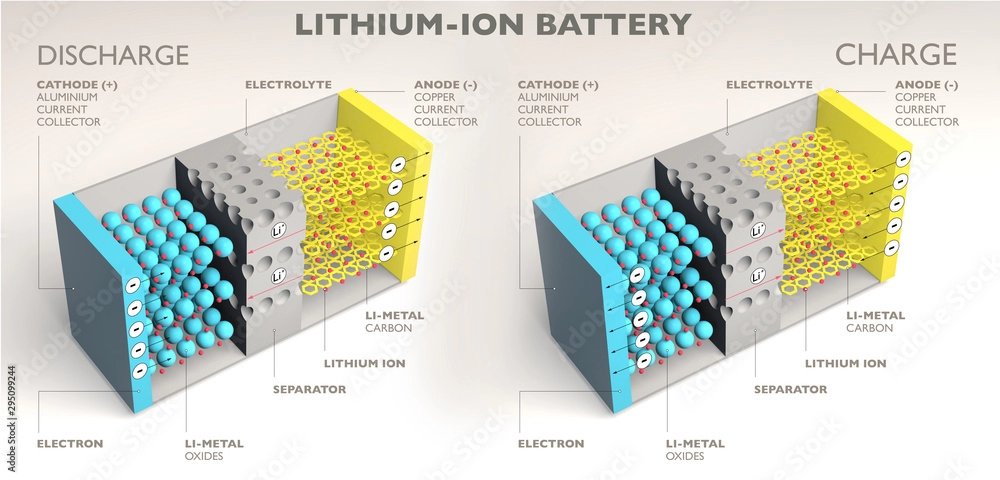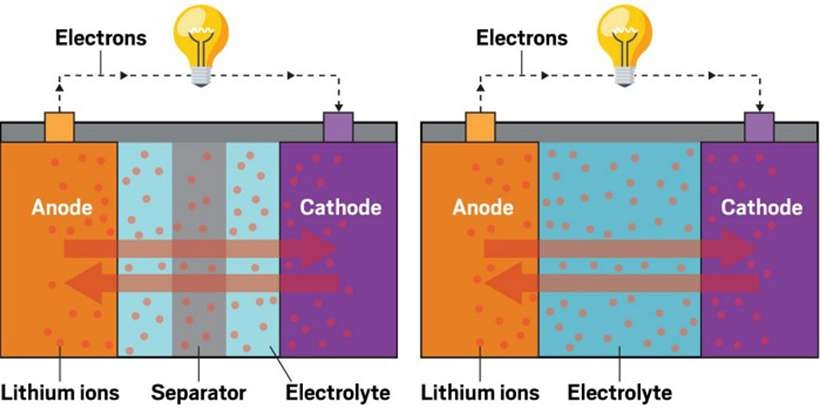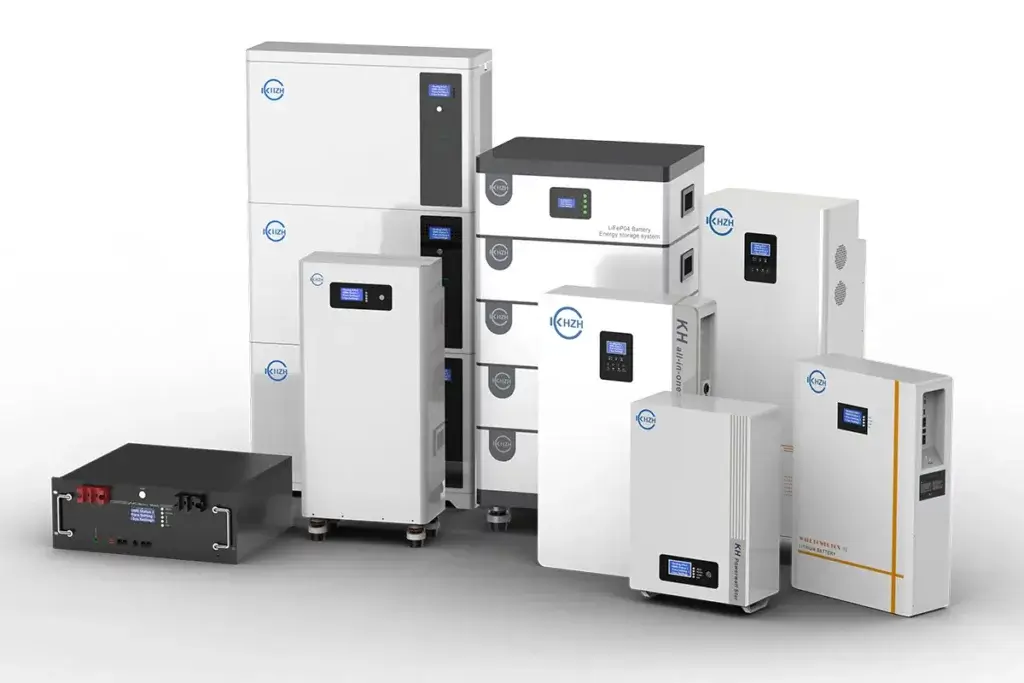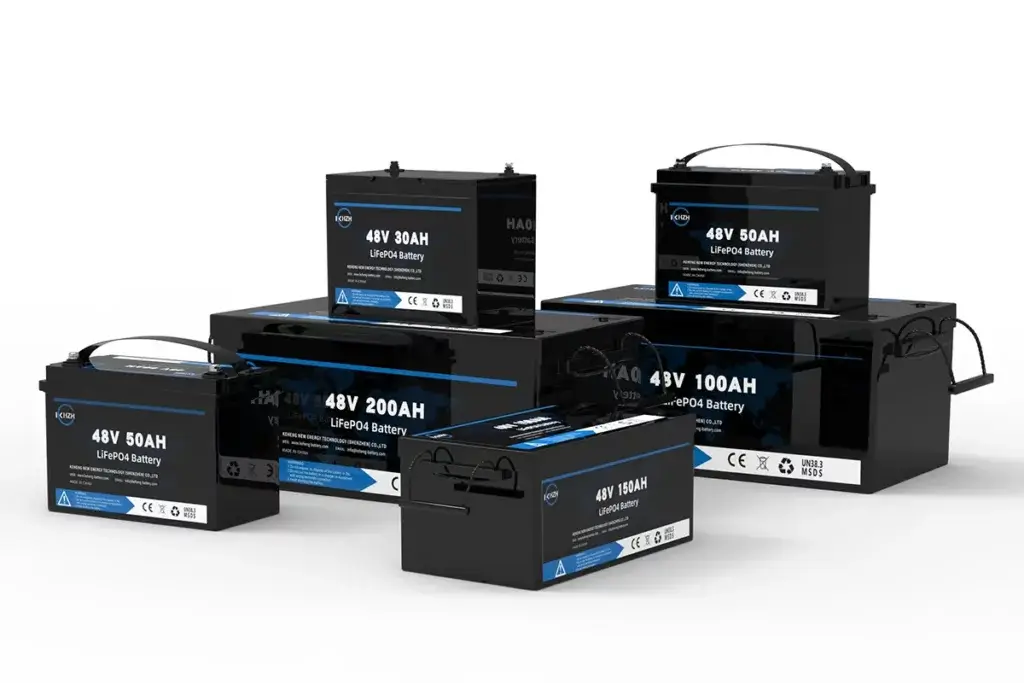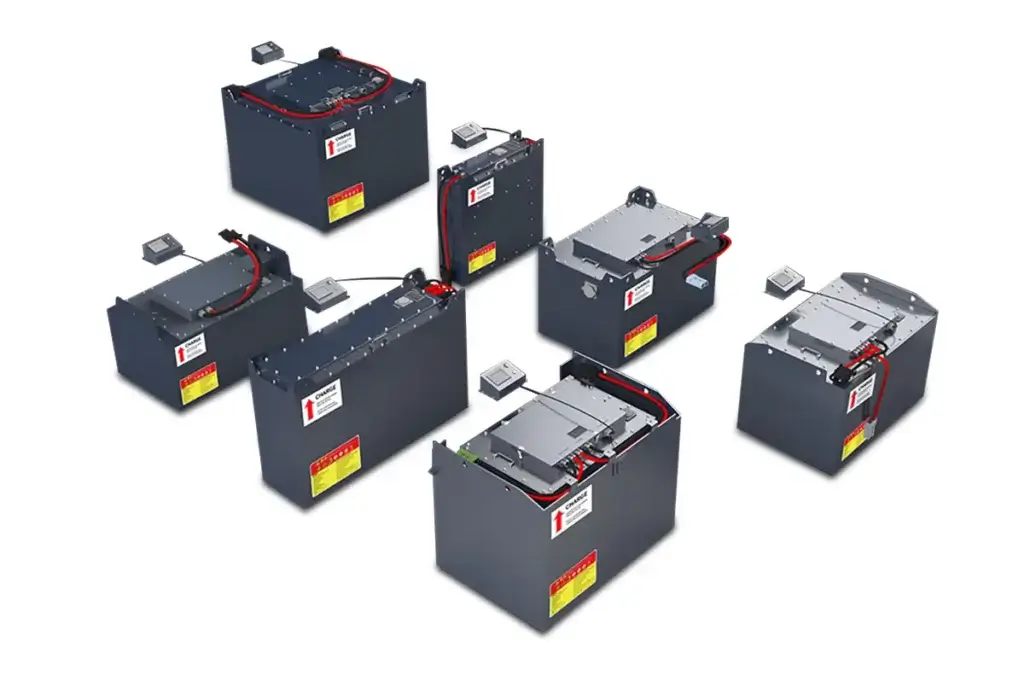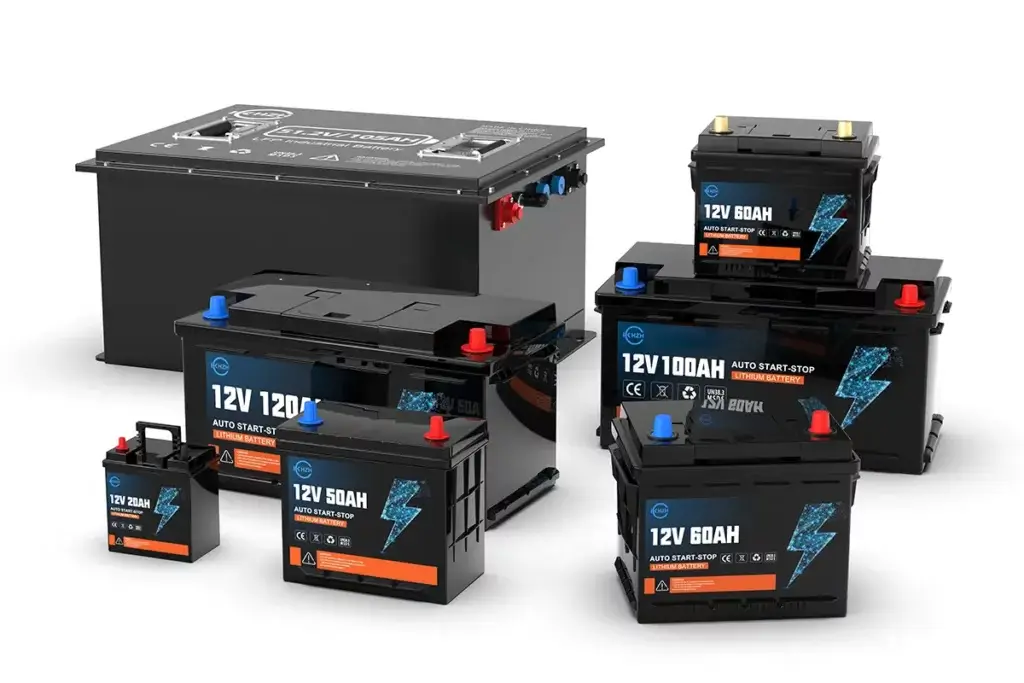A 12V lithium battery is a rechargeable power source that utilizes lithium ion chemistry to store and release energy. It provides a nominal voltage of 12 volts and is suitable for a variety of devices and systems that typically use lead-acid batteries. However, 12V lithium batteries stand out for their significant advantages, making them a more efficient choice for many modern applications.
Understanding the Chemistry: The Core Power of the Battery
At the heart of a 12V lithium battery is lithium ion chemistry, which involves the movement of lithium ions between the anode (negative) and cathode (positive) to store and release energy. The anode is usually made of graphite, a material known for its ability to efficiently store lithium ions. The cathode, on the other hand, can be made of different materials, each of which affects the performance of the battery. The most common cathode materials include:
- Lithium Cobaltate (LCO): LCO cathodes are known for their high energy density, allowing them to store large amounts of energy in a compact space. However, they tend to have a shorter lifespan and are prone to overheating.
- Lithium Manganese Oxide (LMO): LMO cathodes are favored for their safety and thermal stability, and are well suited for applications with high safety requirements. However, their energy density is lower than LCO.
- Lithium-Nickel-Manganese-Cobalt Oxide (NMC): NMC cathodes offer a balance of energy density, power and lifetime. These factors are critical in electric vehicles and energy storage systems, where NMC cathodes are widely used.
Structure: components work together
The design of 12V lithium batteries has been carefully crafted to ensure the smooth flow of lithium ions for safe and efficient energy storage and release. Key components of the battery include:
- Diaphragm: a thin, porous membrane that separates the anode and cathode, preventing direct contact and reducing the risk of short circuits. This is critical for safe operation.
- Electrolyte: a liquid or gel-like substance that allows lithium ions to move freely between the positive and negative electrodes and plays a key role in the chemical reactions that store and release energy from the battery.
- Case: A protective enclosure used to shield all internal components. It ensures structural integrity, protects internal components from damage, and helps prevent the release of harmful gases.
Principle of operation: Lithium ion flow
The working principle of 12V lithium batteries relies on the movement of lithium ions between the positive and negative electrodes. When charging, an external power source pushes the lithium ions from the negative electrode to the positive electrode, thus storing energy within the battery. When discharged, the stored energy is released as the lithium ions return to the negative terminal, powering connected devices. The cycle of constant movement of lithium ions allows 12V lithium batteries to store and release energy efficiently.
Part II: Advantages and Disadvantages
Advantages
12V lithium batteries offer a range of advantages over traditional lead-acid batteries, making them the preferred choice for many modern applications. Key advantages include:
- High energy density: 12V lithium batteries have a significantly higher energy density than lead-acid batteries. This means they can store more energy in less space, making them ideal for space-constrained applications such as electric vehicles or portable power stations. For example, you can learn more about the key role that storage and power lithium batteries play in a variety of applications.
- Long service life: Lithium-ion batteries are known for their extraordinarily long service life. They can withstand multiple charge/discharge cycles without significant degradation, which extends their service life, reduces the number of replacements and lowers maintenance requirements.
Advantages and Disadvantages of 12V Lithium Batteries
Advantages
12V lithium batteries offer a wide range of advantages, making them an ideal choice for many users. Here are some of the main advantages:
1. Lightweight
12V lithium batteries are much lighter than lead-acid batteries of the same capacity. This weight advantage is especially beneficial for applications where portability is critical, such as golf carts, electric bicycles, and portable power systems.
2. Fast Charging
Lithium batteries charge faster than lead-acid batteries, which reduces downtime and improves overall convenience. The quick charge feature is especially useful in applications where fast charging is critical, such as electric vehicles or emergency power systems.
3. Low Maintenance
One of the biggest advantages of 12V lithium batteries is their low maintenance requirements. Unlike lead-acid batteries, which require regular refilling of water, lithium batteries require little to no maintenance, saving the time and cost required to maintain them.
4. Environmentally Friendly
12V lithium batteries do not contain harmful substances such as lead, making them more environmentally friendly than lead-acid batteries. This makes them a more sustainable option, helping to create a cleaner, greener environment.
Disadvantages
While there are many advantages to 12V lithium batteries, there are some potential disadvantages to consider:
1. Cost
One of the main drawbacks of 12V lithium batteries is that the initial cost is higher than that of lead-acid batteries, especially for high-capacity batteries. For users on a budget, the price difference can be a significant factor.
2. Sensitivity to temperature
Lithium-ion batteries are sensitive to temperature extremes, which can affect their performance and lifespan. High temperatures cause accelerated battery aging, while very low temperatures reduce battery capacity and charging efficiency.
3. Safety Considerations
Although rare, 12V lithium batteries can cause fires if not handled properly. To ensure safety, these batteries should always be stored and used in accordance with the manufacturer’s guidance instructions to avoid problems such as overheating, overcharging or short circuiting.
How long do 12V lithium batteries last?
The lifespan of 12V lithium batteries depends on a number of factors, such as:
1. Battery capacity
Batteries with higher capacity are subjected to less stress each time they are charged and discharged and therefore last longer.
2. Usage pattern
Frequent deep discharging will shorten the battery life because deep discharging will drain the battery. To prolong battery life, deep discharge should be avoided as much as possible.
3. Charging habits
Proper charging practices, such as using a charger designed for lithium-ion batteries and avoiding overcharging, can significantly extend battery life. Overcharging can damage the battery and reduce its overall capacity.
4. Operating Temperature
Extreme temperatures accelerate battery aging. To maximize the life of your 12V lithium battery, always use and store the battery within the recommended temperature range.
With proper care, 12V lithium batteries usually last 5 to 10 years, depending on the factors mentioned above, of course.
Applications of 12V lithium batteries
12V lithium batteries are increasingly being used in a variety of applications due to their versatility, efficiency and high performance. The following are some of the most common uses:
1. Electric Vehicles
In electric vehicles, 12V lithium batteries are used to power auxiliary systems such as lights, windshield wipers and radios. Their high energy density and lightweight design make them ideal for such applications.
2. Golf Carts
12V lithium batteries are gradually replacing lead-acid batteries in golf carts. They offer a range of benefits including longer run times, lighter weight and faster charging, all of which contribute to an enhanced golfing experience.
3. Electric Bicycles
E-bikes use 12V lithium batteries to power the ride, extending the distance the rider can travel and improving the overall riding experience.
4. Solar Energy Systems
In an off-grid solar system, 12V lithium batteries store the energy generated by the solar panels, ensuring a reliable power supply even when the sun is not shining.
5. Backup Power System
12V lithium batteries are also commonly used in backup power systems to provide reliable energy during power outages or in remote areas.
12V Lithium Batteries: Key Information and Applications
Part I: Applications for 12V Lithium Batteries
Backup Power
12V lithium batteries are an excellent solution for providing back-up power in the event of a power outage, ensuring that vital equipment such as computers, refrigerators and medical devices continue to operate. Their efficiency and reliability make them ideal for maintaining power supply in emergency situations.
Marine Applications
In the marine sector, 12V lithium batteries are widely used to power marine engines, navigation systems and other onboard electronics. Their corrosion-resistant and vibration-resistant properties make them particularly suitable for the harsh conditions found in the marine environment.
Part II: Key parameters to consider when selecting 12V lithium batteries
When choosing a 12V lithium battery, several key factors should be considered to ensure the battery meets your specific needs:
Capacity in Ah
Capacity is measured in Ampere hours (Ah) and indicates the amount of energy a battery can store. The higher the capacity, the longer the runtime, making it ideal for applications that require long runtimes.
Discharge Rate (C Rate)
The discharge rate, expressed as C-rate, indicates how quickly the battery releases energy. Higher discharge rates are preferred for applications that require high power output, such as electric vehicles or power tools.
Cycle Life
Cycle life is the number of charge/discharge cycles a battery can go through before its capacity drops significantly. The longer the cycle life the more durable the battery is and the longer it will last.
Internal Resistance
Batteries with lower internal resistance perform better and generate less heat. As a result, energy transfer is more efficient and the risk of overheating is lower.
Operating Temperature Range
The operating temperature range of a battery determines the safe temperature range in which it can effectively operate. It is important to select the right battery for your application’s temperature range.
Safety Features
Important safety features such as overcharge protection, overdischarge protection and short circuit protection ensure safe battery operation. These features help protect the battery from damage and minimize hazards such as fire.
Size
The size of the battery is critical to ensure that it is compatible with the equipment it is powering. Be sure to select a battery that fits the available space in your application.
Weight
The weight of the battery is especially important in portable applications such as e-bikes or portable power stations. Lighter batteries are easier to handle and more convenient to use.
Part 3: 12V Lithium Battery Chargers
12V lithium battery chargers are used to provide a controlled current for charging 12V lithium batteries. A charger designed for lithium-ion batteries must be used. Using a lead-acid battery charger may damage the lithium battery. The right charger ensures efficient and safe charging of the battery, prolonging its life and optimizing its performance.
Part 4: 12V Lithium Battery Manufacturer
KHZH is a reputable manufacturer specializing in custom lithium-ion batteries including lithium polymer, 18650, lithium iron phosphate, high temperature and low temperature batteries. They offer batteries in a variety of sizes, capacities, and voltages to meet a wide range of applications. When choosing a 12V lithium battery manufacturer, it is important to select a reliable company with a solid reputation for quality and consistency.
Part V: Conclusion
12V lithium batteries have become a powerful and versatile source of energy with many advantages over traditional lead-acid batteries. By understanding the features, benefits and key parameters of these batteries, you can choose the ideal 12V lithium battery for your specific needs. Whether you are powering an electric car, golf cart or solar system, 12V lithium batteries provide a high-performance energy solution.
